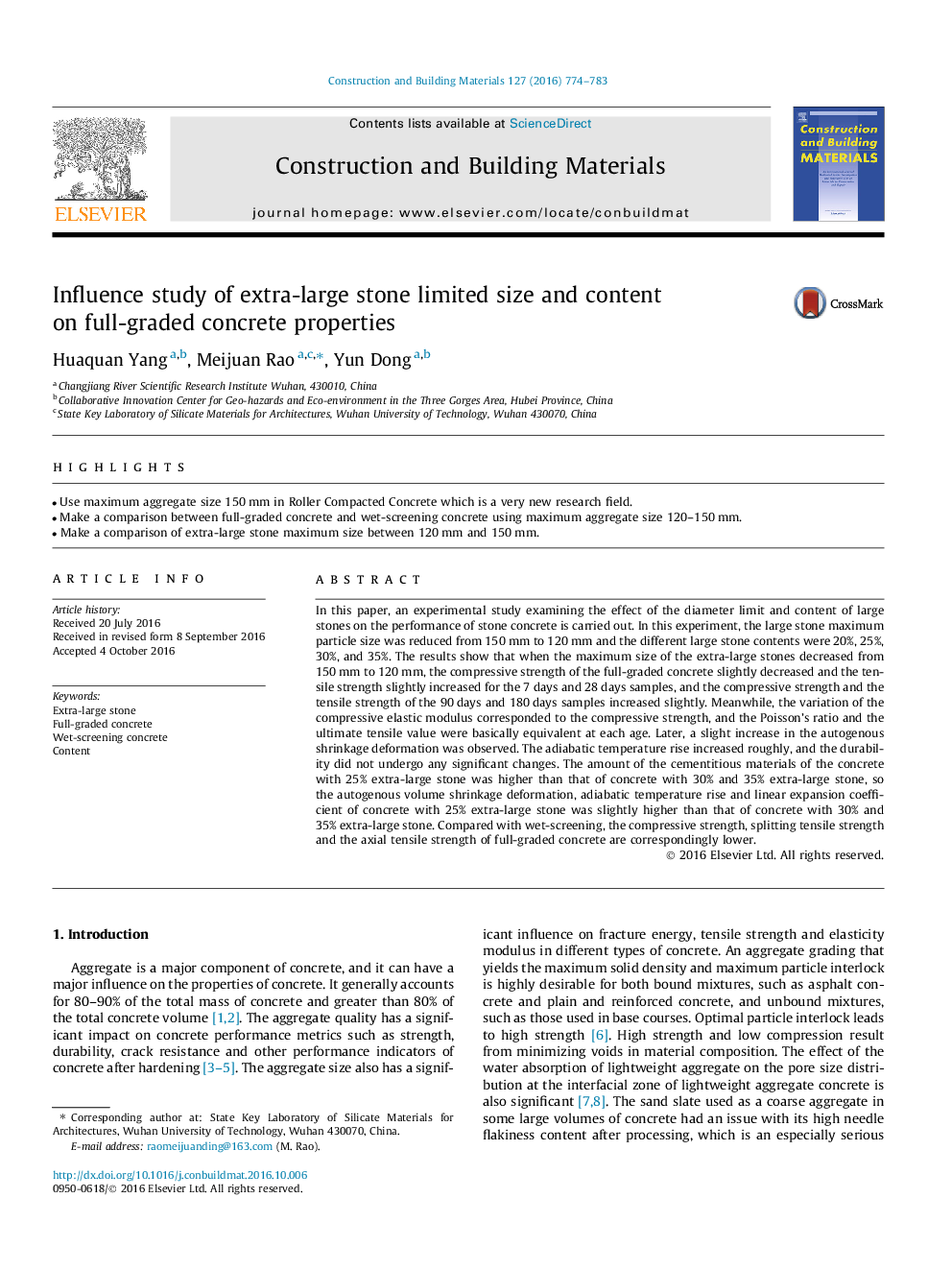| Article ID | Journal | Published Year | Pages | File Type |
|---|---|---|---|---|
| 4913989 | Construction and Building Materials | 2016 | 10 Pages |
Abstract
In this paper, an experimental study examining the effect of the diameter limit and content of large stones on the performance of stone concrete is carried out. In this experiment, the large stone maximum particle size was reduced from 150Â mm to 120Â mm and the different large stone contents were 20%, 25%, 30%, and 35%. The results show that when the maximum size of the extra-large stones decreased from 150Â mm to 120Â mm, the compressive strength of the full-graded concrete slightly decreased and the tensile strength slightly increased for the 7Â days and 28Â days samples, and the compressive strength and the tensile strength of the 90Â days and 180Â days samples increased slightly. Meanwhile, the variation of the compressive elastic modulus corresponded to the compressive strength, and the Poisson's ratio and the ultimate tensile value were basically equivalent at each age. Later, a slight increase in the autogenous shrinkage deformation was observed. The adiabatic temperature rise increased roughly, and the durability did not undergo any significant changes. The amount of the cementitious materials of the concrete with 25% extra-large stone was higher than that of concrete with 30% and 35% extra-large stone, so the autogenous volume shrinkage deformation, adiabatic temperature rise and linear expansion coefficient of concrete with 25% extra-large stone was slightly higher than that of concrete with 30% and 35% extra-large stone. Compared with wet-screening, the compressive strength, splitting tensile strength and the axial tensile strength of full-graded concrete are correspondingly lower.
Keywords
Related Topics
Physical Sciences and Engineering
Engineering
Civil and Structural Engineering
Authors
Huaquan Yang, Meijuan Rao, Yun Dong,
